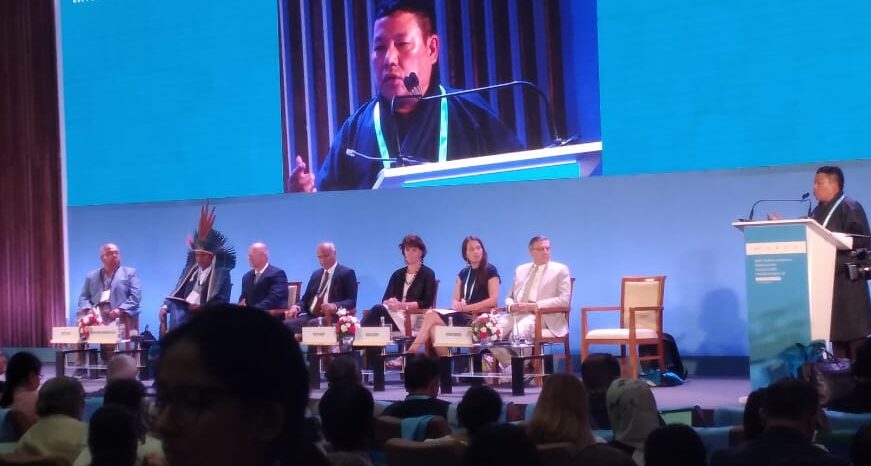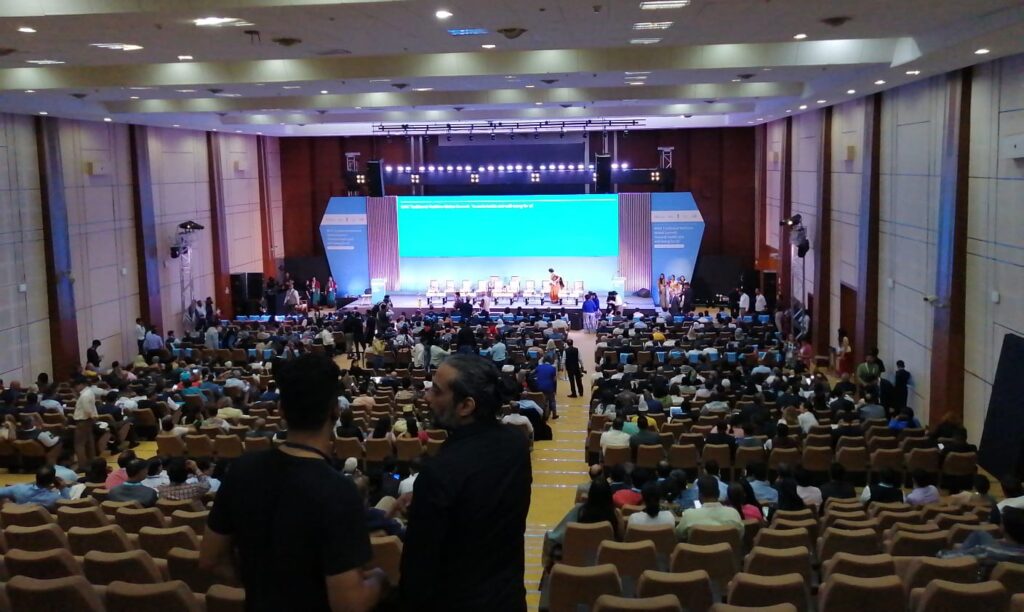For Events/Conferences/ Interpretation Services
- Ram Kesarwani - 9811 200 494
- ram@translationindia.com

Conference interpretation is a complex and dynamic profession that plays a vital role in fostering global communication and collaboration. In today’s interconnected world, where individuals and organizations from diverse linguistic backgrounds converge to exchange ideas, negotiate agreements, and share knowledge, interpreters are the unsung heroes who ensure that language does not become a barrier to progress. These highly skilled professionals possess a remarkable ability to listen, process, and convey spoken words in real-time, bridging the gap between speakers of different languages.

Conference interpreters are not mere translators; they are masters of multitasking, often working in high-pressure environments where split-second decisions can have far-reaching consequences. Whether it’s a diplomatic summit, a scientific conference, a business negotiation, or a multicultural event, conference interpreters are indispensable. They must not only possess a deep understanding of the languages they work with but also be well-versed in the subject matter at hand. This expertise allows them to accurately and fluently convey complex technical, legal, or diplomatic terminology, maintaining the integrity of the message while adapting it culturally and linguistically.
The process of conference interpretation involves several modes, with simultaneous interpretation being the most common in conferences. In simultaneous interpretation, the interpreter listens to the speaker through headphones and simultaneously translates the spoken words into the target language. This challenging task requires intense concentration, split-second decision-making, and exceptional linguistic dexterity. Consecutive interpretation, where the interpreter speaks after the original speaker has finished a segment, and whispered interpretation, where the interpreter provides a hushed translation to a small audience, are also utilized in specific contexts.
The importance of conference interpretation extends beyond the immediate task of facilitating communication. It is a cornerstone of diplomacy, enabling leaders and diplomats to engage in dialogue, resolve conflicts, and negotiate treaties. In the business world, interpreters enable international companies to expand their operations, negotiate contracts, and build relationships with partners and clients from around the world. Moreover, interpreters contribute significantly to the academic community, allowing researchers, scholars, and students to share their findings and collaborate across borders.
In recent years, technology has played a growing role in conference interpretation. Interpretation equipment and headsets have become more advanced and user-friendly. Remote interpretation, facilitated by high-quality video conferencing and streaming platforms, has gained prominence, allowing interpreters to work from anywhere in the world, further expanding the reach of multilingual communication. However, even as technology evolves, the human touch and nuanced understanding provided by skilled interpreters remain irreplaceable.
In conclusion, conference interpretation is an indispensable profession that serves as the linguistic bridge connecting people, cultures, and ideas on a global scale. It requires a unique blend of language proficiency, subject matter expertise, quick thinking, and cultural sensitivity. As the world continues to shrink and international interactions become increasingly common, conference interpreters will continue to play a pivotal role in facilitating understanding, cooperation, and progress across borders.